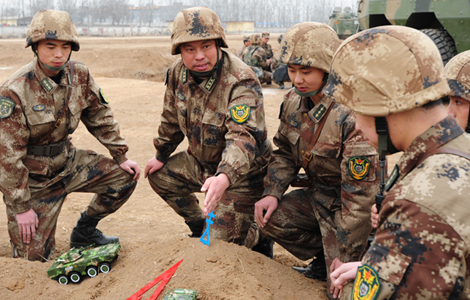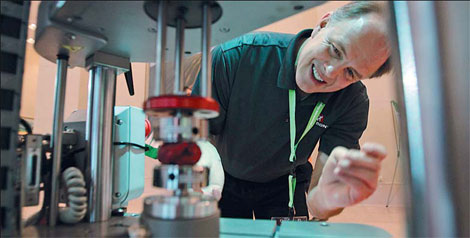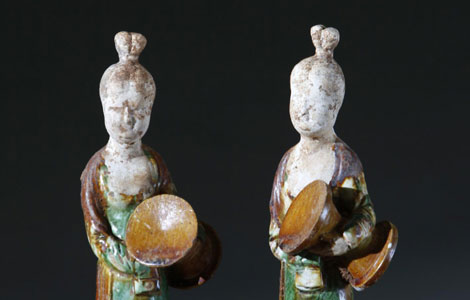Biomaterials forum brings interest in host
Updated: 2012-06-04 08:03
By Xu Xiao in Chengdu (China Daily)
|
|||||||||||
|
A worker of US-based biomaterials company Instron examines the equipment on display in the exhibition during the congress. Photos by Wang Jing / China Daily |
Foreign guests to the World Biomaterials Congress held in Chengdu are eyeing more opportunities in the city.
"Chengdu is at the frontier of the world's biomaterial industry, and the business here is increasing," said James Ritchey, who heads a division of Instron, a US-based professional biomaterial company that manufactures tensile, compression, fatigue, impact and hardness testing machines.
The company now has offices in Beijing and Shanghai. Although there are no offices in Chengdu, Ritchey told China Daily that the city is important to the company because it is the "hub" of biomaterials industry in China.
He said the company came to Chengdu to hear about the latest trends and research findings in biomaterials and understand new requirements in the markets.
Actually, Instron is just among many foreign companies that took part in the exhibition during the congress. Wiley-Blackwell, another US-based company, has taken note of Chengdu's fast development and is looking for potential opportunities here.
Wiley-Blackwell focuses on international scientific, technical, medical, and scholarly publishing business. It publishes nearly 1,500 peer-reviewed journals articles and more than 1,500 new books annually in print and online as well as databases, major reference works and laboratory protocols.
Chengdu's advantages
Since the 1970s, Chengdu has been conducting research on biochemical materials. After decades of development, the city has become one of the country's centers for the research and development of biochemical materials.
As a leader in biomaterials, Chengdu has been designated by the Ministry of Science and Technology as China's nanobiotechnology research and development center. It is also one of the country's important bases for international cooperation in this field.
Chengdu's many universities and research institutions offer strong technological and human resources support for further growth in the field. Renowned Sichuan University has long been backing the industry. Sichuan University's National Engineering Research Center for Biomaterials is the first of its kind in the country.
Other institutions, such as the Southwest Jiaotong University, the Chengdu Organic Chemicals Institute of the Chinese Academy of Sciences and the Sichuan People's Hospital, also have R&D centers in the field.
A lot of scholars and scientists like Zhang Xingdong, academician of the Chinese Academy of Engineering and professor at Sichuan University, are leading a group of talented young scientists to tap the potential of the biomaterials industry in Chengdu and Sichuan province.
The province has listed bioengineering and the new materials industry in its major industrial stimulus plan, which was formulated in 2009 in response to the central government's instructions to develop the western regions.
In 2011, the total revenue of bioengineering and material industries in the province surpassed 190 billion yuan ($30 billion), accounting for 29 percent of Sichuan's high-tech industries, said Jiang Jufeng, governor of Sichuan province at the opening ceremony of the congress on June 1.
He said Sichuan is looking forward to boosting communication and cooperation with international scholars, scientists and businesses to further develop the biomaterials industry and contribute more to people's happiness and well-being.
xuxiao@chinadaily.com.cn
(China Daily 06/04/2012 page15)
Hot Topics
iphone,shenzhou,taiwan,hiv,school bus,house,hk,tibet,rare earth
Editor's Picks

|

|

|

|

|

|








